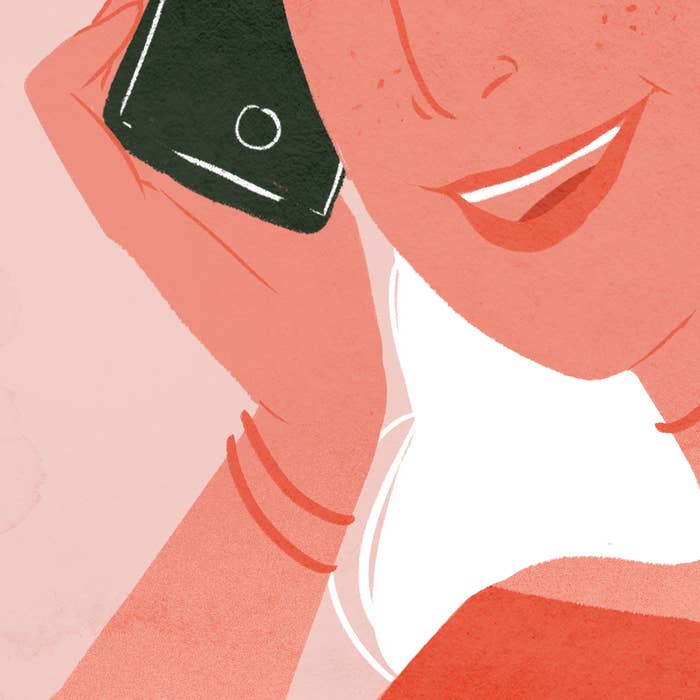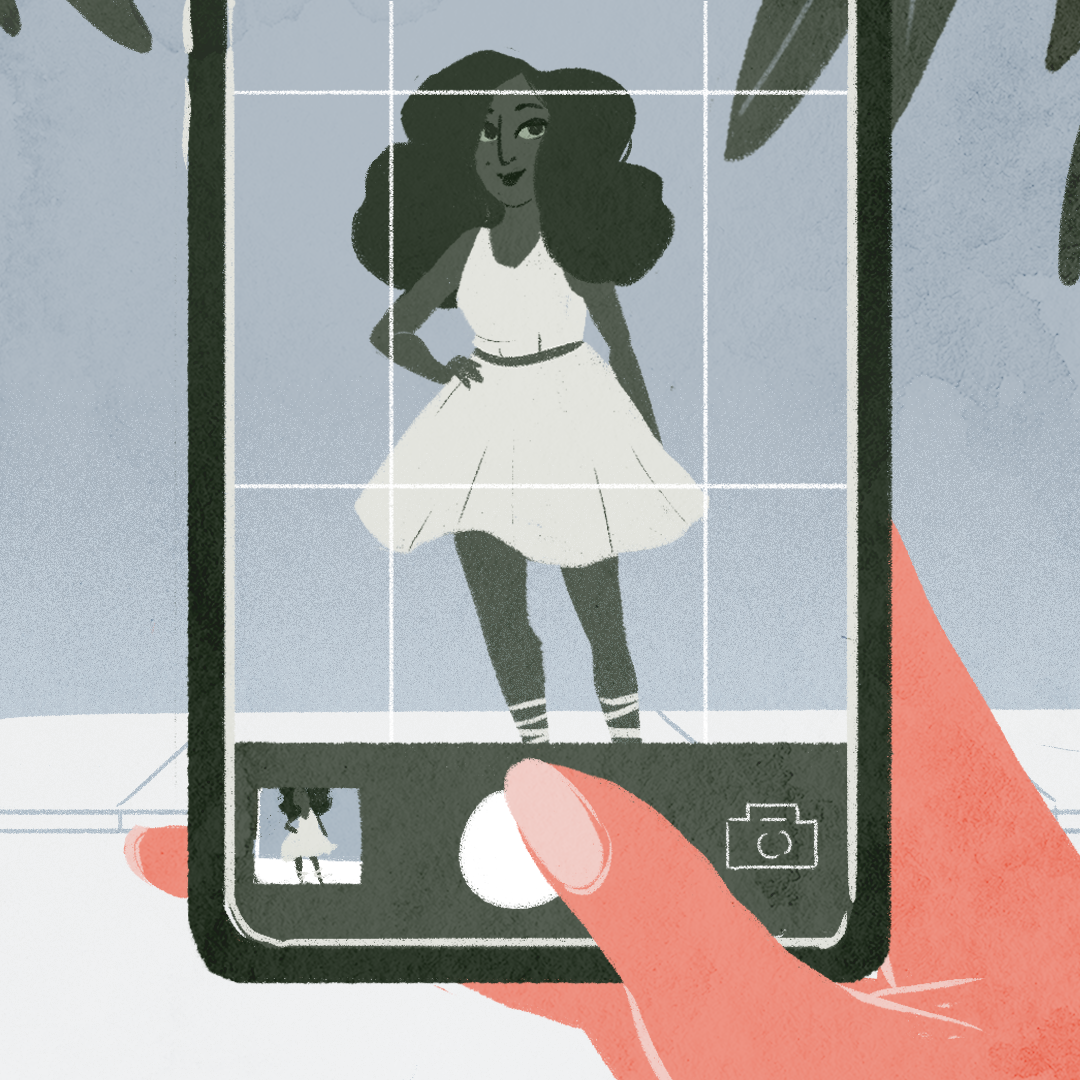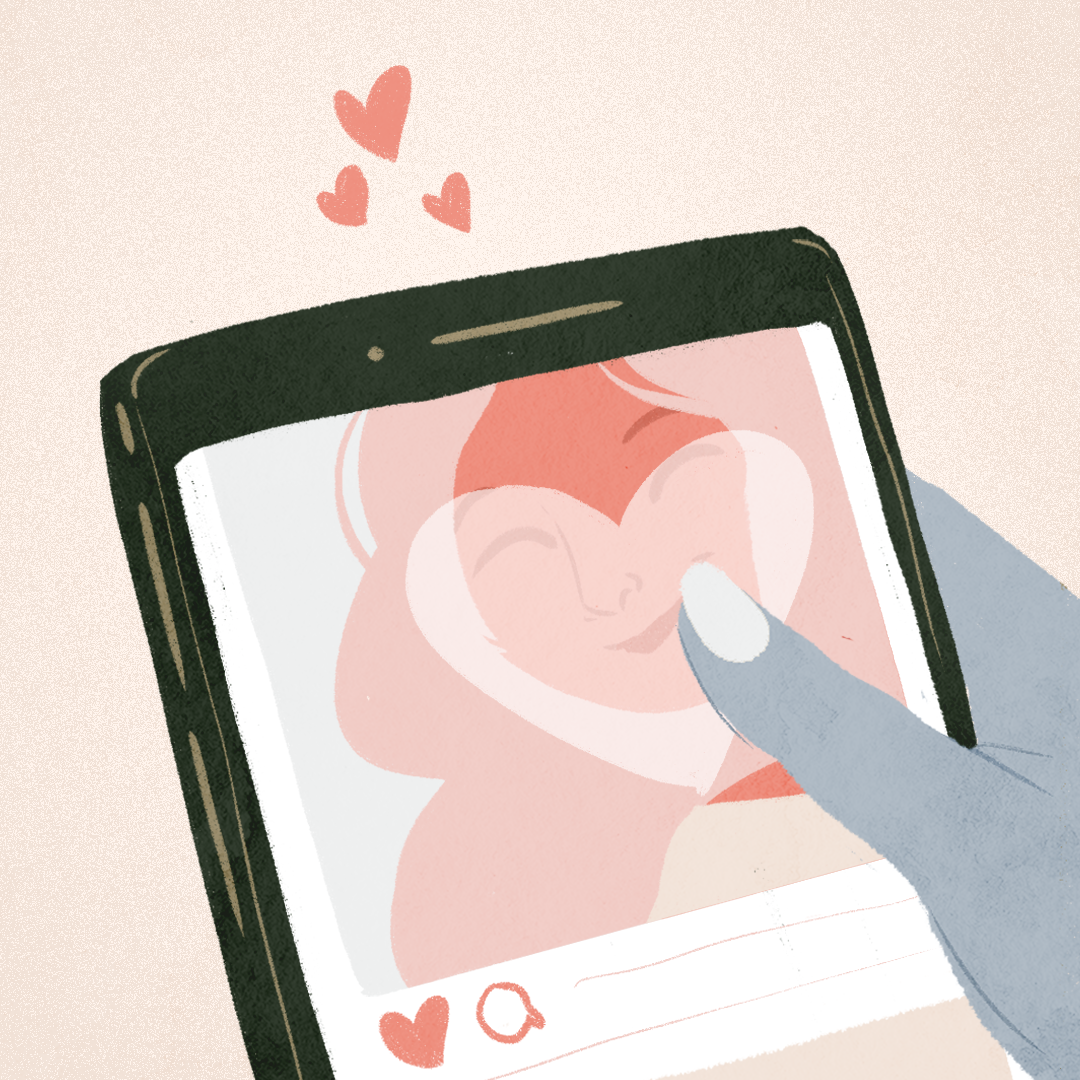
Showing up for other people is hard to describe, but you know it when you see it, or when someone does it for you. When we talk about showing up, we’re talking about bearing witness to other people’s pain, joy, and true selves; validating their experiences; easing their load; truly seeing them; and communicating that they are not alone in this life. Showing up is at the core of creating and maintaining, strong meaningful bonds with friends, family, coworkers, and Internet pals. It’s what turns the people you know into your people.
The thing about showing up is that it’s not exactly easy. It’s simple, but that doesn’t mean it’s not work. Showing up requires intelligence, intuition, empathy, generosity, confidence, and a willingness to be vulnerable. It doesn’t just happen; it takes a level of intentionality, effort, and practice. And truly showing up for others requires you to do something that can be even harder — to show up for yourself first. That means really getting to know yourself, taking care of your physical and mental health, being kind to yourself, and setting boundaries. Showing up for yourself is what will allow you to be a better and more present friend/partner; will prevent resentment, one-sided relationships, and burnout; and will help you figure out exactly what showing up for your people should look like in practice.
Showing up requires intelligence, intuition, empathy, generosity, confidence, and a willingness to be vulnerable.
Each time we show up for someone, it’s like we are turning on a single bulb in a strand of Christmas lights. Occasionally, we’ll get to make a grand enough gesture to light up several bulbs at once, but for the most part, showing up is best done one small, quiet act by small, quiet act. Over time, we’ll turn on more and more bulbs, eventually creating a connected line that glows brightly, lighting our loved one’s path when life gets dark.
As firm believers in the power of showing up — as people who have showed up for others, and who have felt the transformative, life-saving power of having people show up for us — we’ve put together a long list of ways to show up for your loved ones. It’s a living document, meant to be updated and expanded over time. Not everything on this list will apply to everyone or every relationship — a huge part of showing up is knowing your audience — but we hope it will serve as a good jumping off point and a source of inspiration. Because the more of us who show up for each other regularly, the more strands of lights we collectively turn on, and the brighter all of our paths become.
Here are a bunch of different ways to show up for the people in your life:
1. When you’re talking to someone you care about — whether that’s IRL or over the phone/Skype — do your best to be fully present.
2. Give your non-romantic relationships the same sort of attention, care, and mental energy that you give your romantic ones. Think about your friends at least as much as you think about your crush, your favorite sports team, or reality TV celebrities.
3. Set up calendar notifications for their birthdays, or write them on your new calendar each January. (Don’t rely on Facebook to tell you!) Memorize their zodiac sign while you’re at it.
4. And put other meaningful days in their life (kids’ birthdays, wedding anniversaries) on your calendar, especially ones tied to grief. Reach out on the anniversary of their loved one’s passing and let them know you are thinking of them.
5. Figure out the best method of communication for the two of you. Some people are terrible at texting back but are great on the phone. We’re sorry to say that this means you just gotta suck it up and call them sometimes. Talking on the phone sometimes is better than losing lifelong friends because they can’t Gchat all day at work.
6. Establish the low-hanging fruit way to check in with each other regularly. Something as simple as Snapchatting each other pics of your breakfast and outfits every single day can actually be a surprisingly amazing way to connect regularly. So can sending each other voice memos.

7. Ask/remember the names of the coworkers and colleagues they talk about the most. Not only is it logistically easier, it communicates, “I am invested in you and your stories.”
8. When you’re catching up, ask them how their parents/siblings are doing.
9. If you don’t live near each other, make a point to pay attention to the weather in their city. Weather shapes our lives literally every single day — it influences our outfit decisions, daily commute, weekend plans, and overall mood. By being more aware of it, you’re able to get a tiny daily insight into the everyday lives of your favorite people.
10. Repeat after us: “This reminded me of you.” Or “Thought you might enjoy this.” It doesn’t matter if you're sending them a meme or a little gift; that moment of feeling truly seen by a friend is so affirming.
11. Pay attention to and take note of anything they say that includes “I wish,” “I want,” or “I need.”
12. And utilize the “notes” section in their contact card on your iPhone to write things about them you want to remember — birthday gift ideas, favorite color, the names of their 17 nieces and nephews, etc.
13. Set up standing hangout times — weekly calls, monthly breakfasts, a recipe club that meets regularly, whatever. Even if you have to change the exact day/time the week of, it’s so much easier to make it happen when you already have that jumping-off point.
14. And consider having a place you always meet (like your local bookstore, or a great diner) or an activity you always do (go to a matinee and then get coffee); it’s so much easier to make plans if most of that work is already done.
15. Literally show up. Don’t flake on them. Make a point to be on time. And if you do need to cancel plans, set a date for new plans in the same conversation rather than leaving it open.
16. If they tell you about something they have planned, ask them how it went the next day.
17. Get to know their daily/weekly routines so you can tell when things seem off, or when you realize you haven’t seen or heard from them in a while.
18. Get contact info for at least one other person in their life — their parent, their sibling, their partner, their roommate — along with their landlord and/or a coworker. Good to have in case of an emergency, and also for surprise party planning.
19. Send them a positive, funny, or affirming text first thing in the morning.

20. Remember to ask how their day was, and actually listen to the answer.
21. If they keep talking about a Netflix show or comic book they are into, or they recommend a recipe or product, make a point to check it out. Even if you don’t love it, you’ll still learn a bit more about them in the process, and they’ll appreciate that you tried.
22. Don't dismiss the things your friend wants to talk about, even if, TBH, you're not exactly interested.
23. Make a mental note of the topics that they seem to have a lot to say about or have a lot of strong feelings about.
24. And notice the things they don’t ever seem to talk about. You don’t have to pry, but it’s good to be aware of the tender spots.
25. Take more pictures of them when they're feelin' themselves.

26. Tell them when someone else says something nice about them.
27. Support their goals and don’t begrudge them for the things you know they’re actively trying to change for the better.
28. Be conscious of how you talk about other people/other friends in front of them. No one wants to open up to someone who is insensitive, judgmental, or gossipy.
29. And don't tell other people about their personal business without permission — not even other close friends who you trust.
30. If they tell you about a personal experience, avoid interrogating them or taking the devil’s advocate position. (The devil doesn’t need more advocates!!!) Become known as the friend who says, “I believe you.”
31. And do your best not to judge them, especially if they’ve shared something particularly personal or that is a source of shame for a lot of people. (But if you do get judgey about something in the moment, own that and apologize.)
32. Send them handwritten letters or postcards just to say hi.

33. Create your own shared traditions. Plan a weekend trip every summer, choose a holiday that you always spend together, always see the new Star Wars movie together, write them a letter each year on their birthday, etc.
34. Develop your own shared language for things that come up a lot in conversations. Designating a phrase, keyword, or emoji to signal “This is a bit much for me, let’s please change the subject” or “I’m too busy to talk but am thinking of you and miss you!” can really deepen bonds.
35. Practice radical candor.
36. Be honest with them about your needs instead of expecting them to inherently know how to love you, and then harboring resentment when they don’t do it “right.”
37. Like and comment on the pic or status update that's not getting the recognition it deserves.

38. Invite them to things, even if it’s with the caveat “I know you don’t usually do X, but I still wanted to ask.” A lot of people worry that saying no a few times will mean they are never invited again, so try to assuage that fear. Also! If they are continuously saying no to your invites, you can always ask them — in an open, non-pressurey way — if there’s something that would make it easier for them to hang out.
39. If they’re too busy to make plans, ask if they need help balancing their load, if they’d like some company while they do chores or run errands, or if they just want to talk about it.
40. Don’t push them to hang out with other people in your circle who they don’t like/don’t trust. Bonus points: read up on the Five Geek Social Fallacies and The Missing Stair.
41. Keep an eye on whether or not they seem to be spending time with other friends. Social isolation is a very real problem, and isn’t always obvious if you aren’t really looking for it.
42. Really see them. Pay attention to physical cues that they might not be doing great — like looking super tired/not sleeping, poor hygiene, a home in total disarray, or weight fluctuations. You don’t need to comment or anything; it’s all just data that might tell you a story if you start to notice other little flags as well.
43. If your gut is telling you something is off with them, trust your gut.
44. Familiarize yourself with warning signs — of domestic abuse, eating disorders, substance abuse, depression, postpartum depression, and suicide risk. Remind yourself that these things can affect anyone, and no, they wouldn’t necessarily tell you if they were going through it, and no, you don’t always “just know.”
45. Stay curious. Don’t wait until you or your friends experience something terrible — miscarriage, divorce, suicide of a loved one, etc. — to learn about what it’s like to experience it, or how to best support people dealing with it.
46. And be prepared. Bad stuff will happen, so you might as well learn some not-shitty things to say to a friend going through a shitty time and read There Is No Good Card for This: What To Say and Do When Life Is Scary, Awful, and Unfair to People You Love before it does.
47. Celebrate their wins like they’re your wins.

48. Go to the art showcase, recital, or birthday drinks.
49. And always go to the funeral.
50. And offer to go with them to scary appointments they're dreading. Even if they don’t take you up on it, they’ll appreciate that you asked.
51. Send them a Venmo when they are going through something, or when you can tell they just need permission to spend $10 on themselves.
52. If you're looking for a small but solid way to show support, send them a puzzle.
53. When they are going through something difficult — or just venting about a rough couple of days at work — ask, “How can I best support you right now?” Sometimes people want advice, sometimes they just want someone to listen, and other times they need something really practical. They may want to hash out the thing at length or they may be hoping you’ll distract them. Just ask!
54. And when shit gets tough, embody ring theory (comfort in, dump out).
55. If they are dealing with something hard, ask them if they are eating and/or remind them to eat and/or drop off some groceries and/or organize a meal train. Grief, trauma, and mental illness can wreak havoc on eating habits, and they genuinely may not realize they actually haven’t eaten all day.
56. And after a big crisis or just a big life change, set reminders for yourself to check in with them periodically. Those follow-ups mean a lot, and even if they don’t need any support the first four times you ask, they’ll know exactly who to call the day that they do.
57. Read Sheila O'Malley’s incredibly moving thread on what showing up can look like in practice. And this one, from Hayley Webster. Aim to be that person.
58. Know their love language! Let them know yours!

59. Be conscious of how current events might be affecting them. When the news is particularly bad and relevant to a community they are a part of, reach out to them to tell them you’re thinking of them and that you’re there for them.
60. If they tell you that you did something that upset or hurt them, listen to them and ask them how you can be better next time. Then do better next time.
61. If/when you mess up, properly apologize. A mediocre “apology” can undermine trust for years.
62. If you know in your heart that you *haven’t* been showing up for them, be honest about it (and apologize). If your friend noticed, you’ll validate their feelings. And if they hadn’t noticed, they’ll probably still appreciate that you’re thinking about these things and trying your best.
63. If you need to end the friendship, properly break up with them instead of just ghosting or doing a slow fade.
64. Be vulnerable with them so they know they can be vulnerable with you, too.
65. Be generous in telling them how you feel about them. “I really miss you.” “I’m worried about you.” “I appreciate you.” “Your friendship means so much to me.” “I love you.”
66. And be specific with your compliments. They deserve to know exactly why they’re important to the world.
